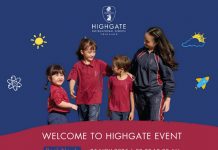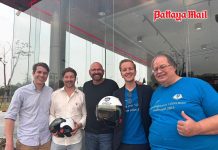Able the Disabled Foundation – (Riding for the Disabled Thailand) at Horseshoe Point Pattaya
For thousands of physically and mentally challenged people, in at least 30 countries, riding horses and ponies has become their first step away from the protective shelter of home, or special school, into the hustle and bustle of the outside world. This can lead to new occupations, careers, friendships and a more full and useful life in the community.
Riding for the Disabled started a long time ago. The Greeks wrote about “Hippotherapy” Hippo = horse) in the 5th century as a way of rehabilitating wounded solders. In 1901 it was being used in Britain by a small group of enthusiasts; but a surge of interest worldwide came in the 1950’s with Madame Liz Hartel, a Danish polio victim who, through determination and willpower, won the Silver medal for Dressage (the classical art of riding) at the 1952 Olympics in Helsinki.
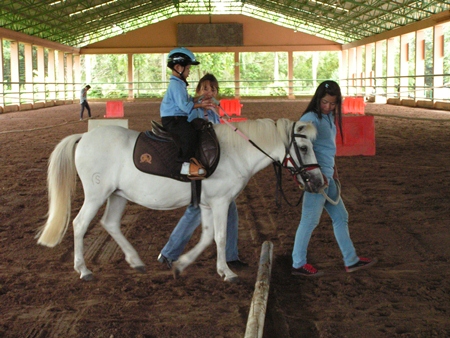 The horse moving naturally in walk simulates and synthesizes a movement as close to the human walk as is possible.
The horse moving naturally in walk simulates and synthesizes a movement as close to the human walk as is possible.
From modest beginnings, the RDA has spread internationally. In our own Asian neighbourhood there are groups in Japan, Hong Kong, Singapore and Malaysia. Able the Disabled Foundation is now under the Federation of Disabled Riding International (FRDI).
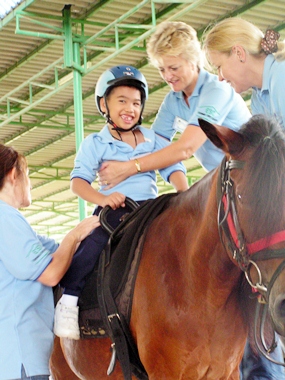 The riders may overcome fears, learn trust and interact socially with their helpers.
The riders may overcome fears, learn trust and interact socially with their helpers.
Many disabled people benefit from riding; some from the therapy it gives, others by actually learning to ride. The benefits can be enormous and wide-ranging. They include improvements in balance, co-ordination, muscle tone, concentration, cooperation and behavior. The feeling of independence and “I can do it” is achieved. For many riders, their visit to the stables is the thing they look forward to most in the week and, in many cases, it may be the only therapy they receive.
The Physical Benefits
The horse moving naturally in walk simulates and synthesizes a movement as close to the human walk as is possible. This movement is used as a treatment base. Each rider is taught on the basis of their own individual needs and goals within a group lesson aided by the volunteers.
The movement and the warmth of the horse (whether on a sheepskin or saddle) encourages relaxation, stimulates the function of the internal organs and digestive tracts. The riders develop balance and learn to position themselves to accommodate the pony’s movement.
In time, co-ordination and communication may be developed and improved. It can offer the opportunity for a physically challenged person to experience mobility on a par with their able bodied peers.
Other Benefits
The riders may benefit from the necessary discipline, respond to requests, overcome fears, learn trust and interact socially with their helpers and their peers, developing as increase in confidence and self esteem.
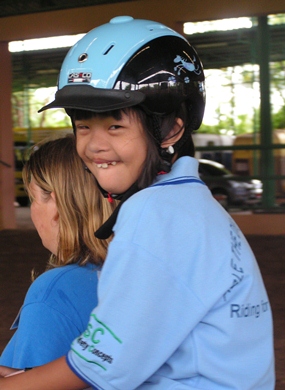 In addition to all the other benefits, it is also fun!
In addition to all the other benefits, it is also fun!
Able the Disabled Foundation at Horseshoe Point Pattaya was started in 2005 and registered in 2006. The founders, Chaikiri Srifuengfung and Chanya Srifuengfung, have a vision along with Riding Therapist Sandra Cooper (UK) to create a Therapy Riding Programme and work towards the International standards of other Asian countries.
The sessions are held most weekday mornings, the children coming from a variety of Special Schools and Day Care Centres. Any school wishing to participate in the programme can apply through the riding school main office.
Children age 5yrs and upwards are considered following an assessment visit and completion of an application form to be signed by a parent or guardian, including a medical form to be signed by a doctor. Private lessons are available in the afternoons and Saturdays.
We are also looking for volunteers to assist with our morning schools or afternoons.
Contacts for any information: Horseshoe Point main office 038 051 676; Riding Therapist Sandra 086-848-3684.


